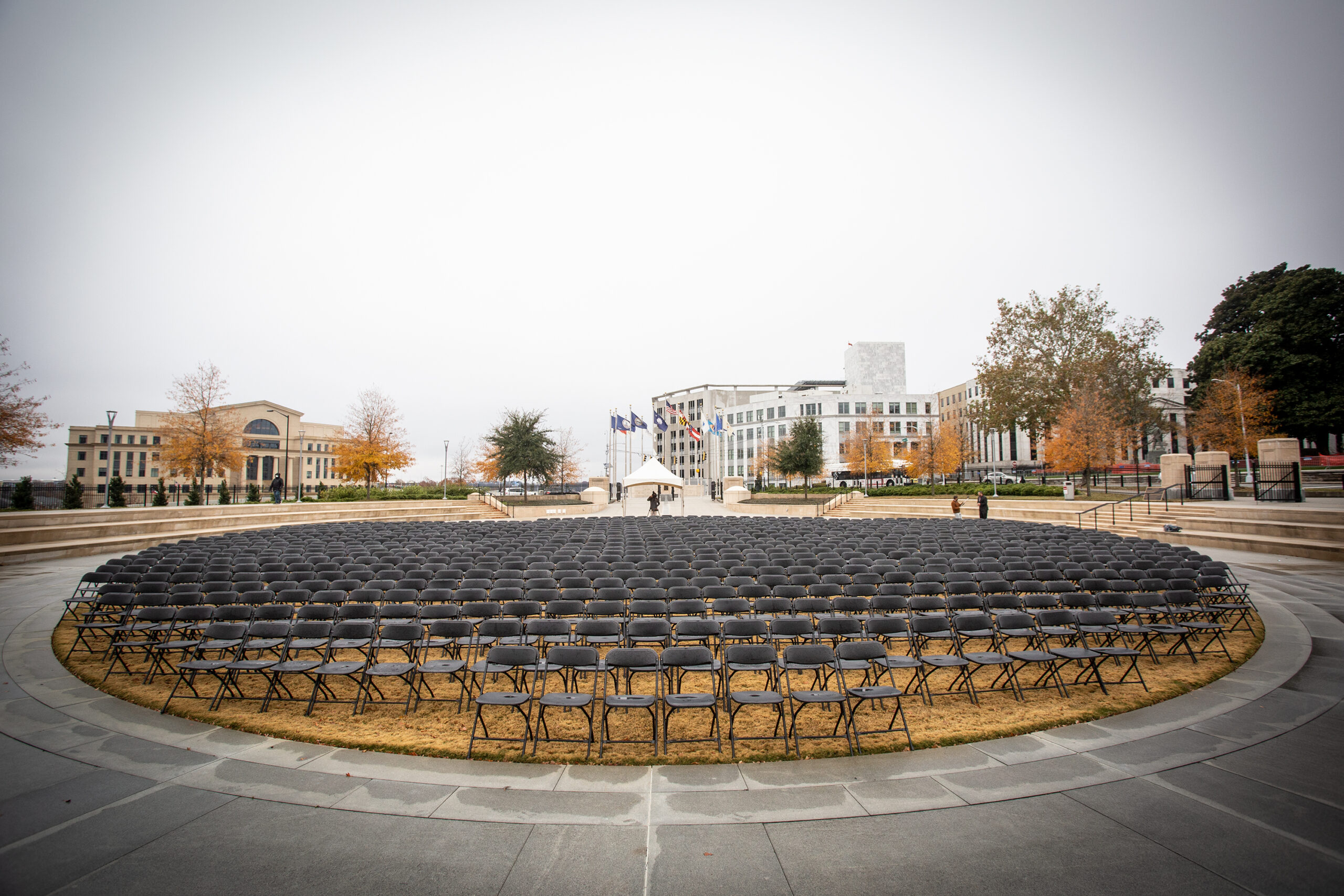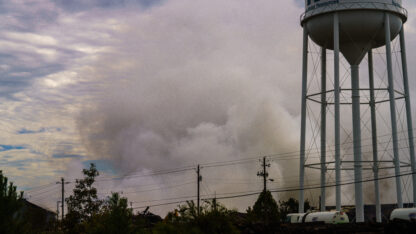A record number of people were in hospitals Wednesday in Georgia with confirmed COVID-19 infections, another signal that infections are now more widespread than at the previous summer peak, as public health authorities sought to raise the alarm that the coronavirus is spreading unabated across the state.
In Atlanta, a group called COVID Survivors for Change set out 1,000 chairs near the state Capitol in a cold rain to remember the people who have died in Georgia from the respiratory illness. That number rose Wednesday to 10,228 confirmed and suspected deaths.
“I caught COVID-19 back in March,” Marjorie Roberts said at the ceremony. “My first day of symptoms was March 26. Now, nine months later I’m still feeling the remnants. I also lost one of my lifelong friends to COVID-19. I didn’t even get a chance to say goodbye. He died in a hospital all by himself. All alone.”
The state Department of Public Health, in a weekly report, warned about the continuing spread of infections. As of Wednesday, confirmed and suspected infections had averaged more than 6,100 over the previous week, the first time that rolling average had exceeded 6,000. At the beginning of November, Georgia was averaging fewer than 2,000 infections a day.
“They reflect our highest case numbers ever, and are not decreasing or leveling off day to day,” the department said.
The report recorded 130 distinct outbreaks last week, up more than 10% from the week before. The top locations for case clusters remained nursing homes and other long-term care facilities, schools, workplaces and prison and jails.
“These outbreaks are occurring in settings where people are physically congregating and underscore the need for physical distancing and source control,” the department said.
About 13% of molecular PCR tests are coming back positive for the virus, the highest level since late July, and a number that indicates widespread community transmission.
Statewide, 17 hospitals on Wednesday were diverting medical or intensive care patients, or both, according to the Georgia Coordinating Center, which tracks hospital capacity.
In Augusta, workers at University Hospital were installing ventilation equipment to create more space for COVID-19 patients.
The hospital broke its previous record of 105 COVID-19 inpatients on July 31 with at least 117 on Wednesday, spokeswoman Rebecca Sylvester told The Augusta Chronicle.
“Just as we are in uncharted territory for case rate now, we are also in uncharted territory for hospital demand due to COVID-19,” said Amber Schmidtke, an epidemiologist who writes a daily report on Georgia’s numbers.
The worsening news came as more hospitals and health care agencies began administering the first doses of COVID-19 vaccines to their employees. But state officials warned Tuesday that only 84,000 doses were immediately available.
More school systems on Wednesday canceled the remainder of in-person classes between now and the beginning of Christmas break, including Bibb County. In Albany, the Dougherty County district said it would delay students’ return to in-person class for a week to try to let infections die down after the holidays. Recent data have shown a big spike in cases among school-aged children.
At the COVID-19 remembrance event in Atlanta, Roberts said she still felt it was necessary to convey the message that COVID-19 is not “a hoax.”
“There is their truth, and there’s our truth. And our truth needs to be heard because we need COVID-19 to be addressed,” she said. “We need to put a name, we have names, we have family, we have loved ones. We’ve lost a lot of things.”
Some survivors said they hope that, when he takes office next month, President-elect Joe Biden will be more effective in controlling the virus than President Donald Trump has been.
“President Biden has worked with the team that developed the pandemic response plan, so my hope is that a plan, a national plan will be enacted under his administration,” said Carol Lewis. “That is my hope.”









